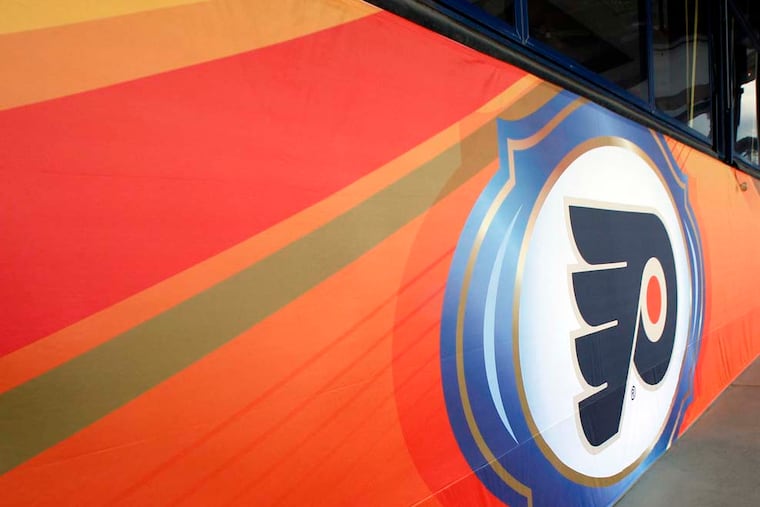Bob McCammon, former Flyers coach and GM, dies at 80
Bob McCammon, a former Flyers coach and general manager, died Thursday at 80. As a coach, he followed legends Fred Shero and Pat Quinn.

Bob McCammon, who had two stints as a Flyers coach — he followed Fred Shero and Pat Quinn, men who later reached the Hockey Hall of Fame — died Thursday. He was 80.
Mr. McCammon also served as the Flyers general manager for one year.
He was director of player development for the Edmonton Oilers when they hoisted the Stanley Cup in 1987, and was a Detroit scout when the Red Wings won Cups in 2002 and 2008.
According to The Province, Mr. McCammon was diagnosed with Alzheimer’s several years ago.
Mr. McCammon, nicknamed “Cagey,” was fired as the Flyers coach and replaced by Quinn in 1979. Late in the 1981-82 season, Quinn was fired and replaced by Mr. McCammon.
When he returned for his first game at the Spectrum, the fans seemed indifferent.
“Well, no reaction is favorable at this time,” Mr. McCammon said at the time. “I’m just here to do a job, not run for mayor.”
In 1978-79, Mr. McCammon, at age 37, had a tough act to follow in his first season as the Flyers coach. He became the fourth coach in franchise history when he replaced Shero, who had directed the Flyers to Stanley Cups in 1974 and 1975 and a 308-151-95 record in his seven seasons. Shero resigned because he felt “my effectiveness to motivate the players … has been exhausted.”
The Flyers got off to a 22-17-11 start under Mr. McCammon and he was replaced by Quinn. Under Quinn, the team went 18-8-4 the rest of the season and made the playoffs, and the Flyers reached the Stanley Cup Finals the next season (1979-80), one that included a record 35-game unbeaten streak.
Mr. McCammon replaced Quinn and coached the final eight games in 1981-82.
Quinn was more of a taskmaster, while Mr. McCammon would hang out with the players at one of their South Jersey drinking spots, said left winger Brian Propp, who played for both coaches.
Mr. McCammon “liked to have fun. He kind of knew what he had to do [as a coach],” Propp said on Friday. “We had good leaders on the team. Pat Quinn was more strategic, and Bob liked to joke around and say funny things to the players” to get them motivated. “Everybody loved him and we had good times with him.”
The Flyers went 49-23-8 under Mr. McCammon in 1982-83, with a team that included veterans Bobby Clarke, Bill Barber, Darryl Sittler, Mark Howe, and a host of promising younger players such as goaltender Pelle Lindbergh.
Led by young stars Tim Kerr, Propp, and Dave Poulin, the Flyers compiled a 44-26-10 record in 1983-84, Mr. McCammon’s final season as their coach. The team lost in the first round of the playoffs in Mr. McCammon’s last two seasons with the Flyers, getting swept and extending their playoff losing streak to nine games under him.
Prior to his first stint with the Flyers, Mr. McCammon coached the franchise’s AHL farm team, the Maine Mariners, and led them to the Calder Cup in 1977.
Mr. McCammon became the Flyers’ general manager at the end of the 1982-83 season and still remained as the team’s coach.
After the next season, Mr. McCammon and the Flyers agreed to part ways. The Flyers had wanted him to concentrate on just his GM duties and give up coaching. Mr. McCammon wanted to continue in both roles.
“I felt that it was ineffective for one man to do both jobs,” Jay Snider, then the club’s president, said at the time.
Bobby Clarke (GM) and Mike Keenan (coach) replaced Mr. McCammon.
The Flyers had a 119-68-31 record (.617 points percentage) under the coaching of Mr. McCammon, who later spent four years coaching the Vancouver Canucks and directing them to a 102-156-36 record.